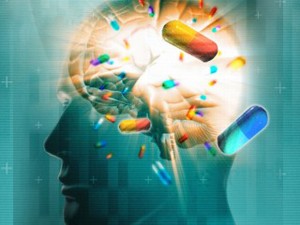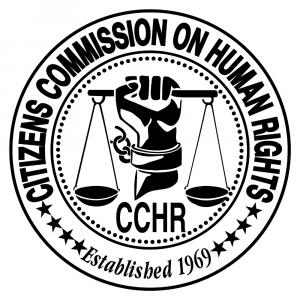Exercise Is Effective Prevention and Treatment for Depression, Researchers Affirm

Antidepressants are not the only solution for depression. Research shows that exercise is an effective, all-natural treatment to fight depression.

Physical activity equivalent to 2.5 hours per week of brisk walking was associated with a 25% lower risk of depression.

Despite claims by mental health practitioners that depression is due to a chemical imbalance in the brain, there is no evidence of any neurochemical abnormalities that might cause depression.
Research links the rise in depression during the COVID-19 pandemic to a lack of exercise. Even moderate exercise can prevent or alleviate depression symptoms.
Depression is a major cause of suicide and other mental and physical health problems worldwide. Currently, 45 million Americans are prescribed an antidepressant as treatment, including more than 2 million children under the age of 18.
A team led by researchers from the Cambridge University School of Clinical Medicine in England conducted an analysis of 15 studies comprising 191,130 adults to investigate the link between depression and exercise and to assess the level of activity necessary to reduce the risk of depression.
Reporting in JAMA Psychiatry, researchers found that those who are physically active have a lower risk of depression than those who do not exercise at all and that “relatively small doses of physical activity were associated with substantially lower risks of depression.”
“Adults meeting physical activity recommendations (equivalent to 2.5 hours per week of brisk walking) had lower risk of depression, compared with adults reporting no physical activity,” according to the researchers.
Each week, adults need two and a half hours of moderate-intensity physical activity, according to the current Physical Activity Guidelines for Americans from the U.S. Office of Disease Prevention and Health Promotion.
This recommended level of activity was associated with a 25% lower risk of depression, and at half that level, the risk was 18% lower compared with no activity, the researchers reported. Only minor additional antidepressant benefit was derived from even more exercise.
It has long been recognized that exercise exerts a significant antidepressant effect. In a 1999 study led by James Blumenthal, Ph.D., a psychologist and professor at the psychiatry and behavioral sciences department of Duke University Medical Center, depressed older adults (50 years of age and older) received either aerobic exercise, antidepressants, or both as treatment for 16 weeks. The results, published in the Archives of Internal Medicine, indicated that exercise alone was as effective as antidepressants in reducing depression. The researchers noted that this finding was consistent with the findings of studies of the effectiveness of exercise in treating younger adults with depression.
Blumenthal’s research group followed up with a randomized controlled trial in 2007, in which depressed middle-aged and older patients were assigned to one of four groups, receiving either supervised exercise in a group setting, home-based exercise, antidepressants, or placebo pills as treatment. After 16 weeks, exercise was found to be more effective than placebos and just as effective as antidepressants in reducing symptoms of depression, whether the patients exercised in a supervised group or on their own. The results for the patients with moderately severe depression were the same as for the less severely depressed patients in the study.
The power of exercise to relieve symptoms of depression was also the conclusion of a meta-analysis of 11 clinical trials on aerobic exercise conducted by Ioannis Morres, Ph.D., of the University of Thessaly in Greece and his team. The 2018 study, published in Depression and Anxiety, found that aerobic exercise, delivered on average for 45 minutes three times a week for 9.2 weeks showed “a significantly large overall antidepressant effect” for adults with major depression.
Similar results were found when researchers analyzed data from 1.2 million American adults who took the Centers for Disease Control and Prevention’s Behavioral Risk Factors Surveillance System survey in 2011, 2013, and 2015. The 2018 study, published in The Lancet Psychiatry, found that all types of exercise – even walking – for an average duration of 45 minutes three times a week were “significantly and meaningfully” associated with fewer days of poor self-reported mental health by survey participants as compared to those who did not exercise.
Still other research points to the link between a lack of exercise during the COVID-19 pandemic and the widely publicized increase in depression experienced by young people. Using biometric and survey data from college students before and during the period of March to July 2020, researchers from several universities found that the average steps taken per day declined from 10,000 to 4,600, sleep increased by 25 to 30 minutes per night, time spent socializing declined by over half to less than 30 minutes, and screen time more than doubled to over 5 hours per day. Concurrently, the proportion of students at risk of clinical depression nearly doubled, with the rate increasing 90% compared to just prior to the pandemic, according to the study, published in the journal PNAS in 2021.
“Our analyses suggest that disruption to physical activity is a leading risk factor for depression during the pandemic,” the researchers wrote.
Online health guidance from Harvard Medical School calls exercise “an all-natural treatment to fight depression.” “Pills aren’t the only solution. Research shows that exercise is also an effective treatment,” according to the Harvard Health Publishing website.
Validation of exercise as an alternative to drugs in treating depression comes at a time when research is finding that pharmaceutical antidepressants are ineffective, target supposed chemical imbalances of the brain that billions of dollars and decades of research have never proven exist, and carry the risk of serious side effects when taking or discontinuing the drugs.
In his recently published book, Healing, psychiatrist Thomas Insel, M.D., admits that during his tenure as director of the National Institute of Mental Health from 2002 to 2015, he administered more than $20 billion in grants for brain research in a failed search for biological causes of mental disorders.
A recent review of evidence by researcher John Read, a professor of psychology at the University of East London, and Joanna Moncrieff, a psychiatrist and researcher at University College London, found that the two primary treatments for depression, antidepressants and electroconvulsive therapy (ECT, or “electroshock”), are ineffective, harmful to brain function, and rest on assumptions of brain dysfunction that have never been proven.
“Despite claims by professional organizations and the pharmaceutical industry that depression is due to a chemical imbalance than can be rectified by drugs, there is no evidence that there are any neurochemical abnormalities in people with depression, let alone abnormalities that might cause depression,” they wrote.
The Citizens Commission on Human RIghts (CCHR) psychiatric drug side effects search engine (www.cchrint.org/psychdrugdangers) currently lists 283 research studies and 155 warnings from international drug regulatory agencies about the adverse effects of antidepressants, including anxiety, aggression, impulsiveness, mania, violence, worsening depression, and suicidal thoughts and actions.
Recent research has also found that 56% of people who attempt to come off antidepressants experience withdrawal symptoms, with nearly half (46%) of them rating those effects as “severe.”
Summing up the failure of current psychological and drug treatments for depression to benefit patients, researchers Pim Cuijpers, Ph.D., a psychology professor at the Amsterdam Public Health research institute, and Charles F. Reynolds II, M.D., a professor in geriatric psychiatry at the University of Pittsburgh School of Medicine, wrote recently in JAMA Psychiatry that “the effects are modest, relapse rates are high, and many patients do not respond to treatments at all.”
Recently, the organization that researches and develops guidelines and standards for health care practices in England took a stand against prescribing antidepressants as the primary treatment for depression. In draft guidance issued in November, the London-based National Institute for Health and Care Excellence advised that antidepressant drugs should not be considered first-line treatment. Instead, people with depression should be offered and able to choose from a variety of treatment options, including non-drug options like exercise.
WARNING: Anyone wishing to discontinue or change the dose of an antidepressant or other psychiatric drug is cautioned to do so only under the supervision of a physician because of potentially dangerous withdrawal symptoms.
Since 1969, CCHR has exposed the ineffectiveness and harm of antidepressants and electroshock as treatment for depression and has supported evidence-based alternative approaches to mental health. CCHR also recommends a complete physical examination with lab tests and nutritional and allergy screenings to identify any underlying physical causes of depression or other unwanted mental and emotional symptoms.
The Citizens Commission on Human Rights was co-founded in 1969 by members of the Church of Scientology and the late psychiatrist and humanitarian Thomas Szasz, M.D., recognized by many academics as modern psychiatry’s most authoritative critic, to eradicate abuses and restore human rights and dignity to the field of mental health. CCHR has been instrumental in obtaining 228 laws against psychiatric abuses and violations of human rights worldwide.
The CCHR National Affairs Office in Washington, DC, has advocated for mental health rights and protections at the state and federal level. The CCHR traveling exhibit, which has toured 441 major cities worldwide and educated over 800,000 people on the history to the present day of abusive and racist psychiatric practices, has been displayed at the Congressional Black Caucus Foundation Annual Legislative Conference in Washington, DC, and at other locations.
Anne Goedeke
Citizens Commission on Human Rights, National Affairs Office
+1 202-349-9267
email us here
Visit us on social media:
Facebook
CCHR: Antidepressant Warning
Legal Disclaimer:
EIN Presswire provides this news content "as is" without warranty of any kind. We do not accept any responsibility or liability for the accuracy, content, images, videos, licenses, completeness, legality, or reliability of the information contained in this article. If you have any complaints or copyright issues related to this article, kindly contact the author above.

